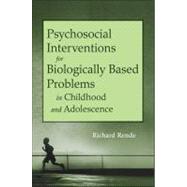
Note: Supplemental materials are not guaranteed with Rental or Used book purchases.
Purchase Benefits
What is included with this book?
Richard Rende, Ph.D., is a nationally and internationally recognized researcher who combines expertise at the intersection of developmental psychopathology and developmental behavioral genetics. As Associate Professor of Psychiatry and Human Behavior at Alpert Medical School of Brown University, he has been awarded multiple grants from 4 branches of the National Institutes of Health. He is the founder of Social Behavioral Research Applications (SBRA), a unique consultation service for industry, government, and academics. Rende developed the Red-Hot Parenting blog for Parents.com and a monthly column for the New Bedford Standard Times. His work has been featured on NPR, ABC News, The Huffington Post, Yahoo!, Time.com, CNN.com, and MSNBC.
Preface ix
Acknowledgments xiii
1 Prelude: Great Expectations 1
Aren’t Magic Bullets Possible? 10
So Aren’t Similar Successes Imminent? 11
What Will be the Yield of Genetic Research in Terms of Intervention? 14
Where Will All of This Lead? 17
2 Autism Spectrum Disorder: Can We Use Environmental Intervention to Reprogram Genetic Effects? 21
Genomic Approaches to ASD 24
Is There a New Fundamental Etiological Model of ASD? 27
Genomics, Complex Disorders, Hype, and Hope 30
Using the Environment to Reprogram the Effects of Genes 34
What’s Next? 41
References 44
3 Attention-Deficit/Hyperactivity Disorder and Reading Disorder: Illuminating How the Environment Shapes Highly Heritable Disorders 45
Genetic Models of ADHD and RD: Why Has Gene Discovery Been So Elusive? 47
Why Would the Environment be Important for Highly Heritable Disorders? 51
More Nuanced Models of Gene–Environment Interplay for ADHD and RD 54
The Promise of Psychosocial Interventions 59
Concluding Remarks 66
References 67
4 Conduct Problems and Substance Use: The Underappreciated Role of Shared Environmental Influences 69
Genetic Models of CP and SU 73
The Impact of Shared Environmental Influences 75
Getting Molecular About the Environment 81
A Developmental Gene–Environment Model 86
Family-Based Interventions and Genetic Epidemiology 90
Summary and Looking Ahead 95
References 96
5 Depression: The Importance of the Family as a Context for Gene Expression 99
High-Risk Studies of Offspring of Depressed Parents 101
Genetic Models of MDD 104
GxE Interaction and Depression 108
Depression in Adolescents and Children 112
Who Should be Treated in Families at Risk? 116
Implications of the Parental Treatment Studies 120
References 124
6 Pediatric Bipolar Disorder: Complex Phenotypes, Genotypes, and Environments 127
Current Thinking on the Genetics of BP 128
Is PBD an Early Manifestation of Genetic Risk to BP? 130
The Clinical Complexity of PBD 138
Emphasizing Psychosocial Interventions for PBD 143
Conclusions 148
References 150
7 Pediatric Anxiety Disorders: The Intersection of Genes and Environments 153
The Heterogeneity of Anxiety Disorders: Focusing on Anxiety-Related Behaviors in Childhood and Adolescence 154
Anxiety in the Family: The Intersection of Genes and Parenting 164
Genes, Environment, and Anxiety: Newer Methdologies 168
Concluding Remarks 174
References 177
8 The Future: Why Psychosocial Intervention Will Matter Even More 179
Future Genetic Research and the Conceptualization of Disorders 183
Genomics May Refine Diagnosis and Point to Tailored Interventions 188
Genomics Will Lead to Earlier Intervention 191
Genomics Will Accelerate the Development of Psychosocial Interventions 193
Will We Discover Magic Bullets? 194
Author Index 197
Subject Index 203
The New copy of this book will include any supplemental materials advertised. Please check the title of the book to determine if it should include any access cards, study guides, lab manuals, CDs, etc.
The Used, Rental and eBook copies of this book are not guaranteed to include any supplemental materials. Typically, only the book itself is included. This is true even if the title states it includes any access cards, study guides, lab manuals, CDs, etc.